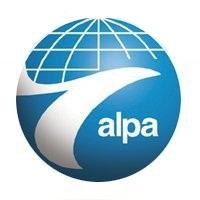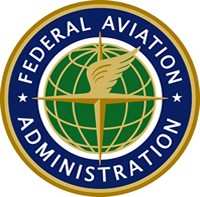Provisions Become Effective On August 2, But Uncertainty Remains
In a message posted on its website, ALPA reminds pilots that new ATP qualifications outlined by the FAA will go into effect on August 2 of this year. In 2010, the U.S. Congress passed a bill titled the “Airline Safety and Federal Administration Extension Act of 2010” requiring first officers in FAR Part 121 operations to hold an Airline Transport Pilot (ATP) certificate. This bill, which was signed into law as Public Law 111-216, may also have the effect of requiring all U.S. airline pilots to hold a first-class medical and to be at least 23 years old. A degree of uncertainty surrounds this issue for the entire industry, because the FAA is expected to publish new regulations that expand upon and clarify the law before it goes into effect.

The law gave the airlines three years to comply with this new provision, so it will take effect on August 2, 2013. Accordingly, unless the FAA modifies the regulations regarding the requirements of the ATP, pilots not holding an ATP by that deadline may not be permitted to fly for a carrier in Part 121 operations.
However, per the law’s provisions, the FAA last year published a notice of proposed rulemaking to modify and create a new “restricted privileges” ATP. The proposed FARs included a requirement that all pilots serving in Part 121 operations be type-rated in the aircraft flown. It would also give flight-hour reductions to earn the restricted privileges ATP by pilots who are at least 21 years old and have military flight experience or professional flight training from an accredited university. ALPA supported these provisions, but also called on the agency to “grandfather” those pilots who are currently flying in FAR 121 operations so their employment will continue uninterrupted beyond the August 2, 2013, deadline. We understand that the FAA may also qualify pilots for the “restricted” ATP if they are at least 21 and have at least 1,500 hours flight time without military qualifications and without formal flight training through a college or university. The FAA has
not yet published a final rule on these issues, but it is anticipated to come out very close to the August 2, 2013, legislative deadline.

The FAA has approved changes to airline training programs so pilots can be issued an ATP and type-rating during recurrent training. Some airlines, but not all, have been very proactive and are helping their commercial-certificate holders obtain both of these authorizations in advance of the requirement.
Furthermore, the FAA has indicated that all Part 121 pilots will be exercising ATP privileges on August 2, 2013, and may thus be required to hold a valid first-class medical. Pilots not holding a valid first-class medical should endeavor to obtain it before that deadline in order to be in compliance with the current law in the event that FAA does not address the matter in regulation by the August 2nd deadline. A first-class medical is valid for a period of 1 year for pilots under the age of 40 and valid for 6 months for those age 40 or older.
ALPA continues to encourage the FAA to ensure that the employment status of current airline pilots not be altered by the 2010 law, but it is incumbent upon affected pilots to be fully aware of what may transpire on August 2, 2013, and to prepare accordingly. ALPA says it will pass along additional information on this important subject as it becomes available.
 Bolen Gives Congress a Rare Thumbs-Up
Bolen Gives Congress a Rare Thumbs-Up The SportPlane Resource Guide RETURNS!!!!
The SportPlane Resource Guide RETURNS!!!! Buying Sprees Continue: Textron eAviation Takes On Amazilia Aerospace
Buying Sprees Continue: Textron eAviation Takes On Amazilia Aerospace Hawker 4000 Bizjets Gain Nav System, Data Link STC
Hawker 4000 Bizjets Gain Nav System, Data Link STC Echodyne Gets BVLOS Waiver for AiRanger Aircraft
Echodyne Gets BVLOS Waiver for AiRanger Aircraft




